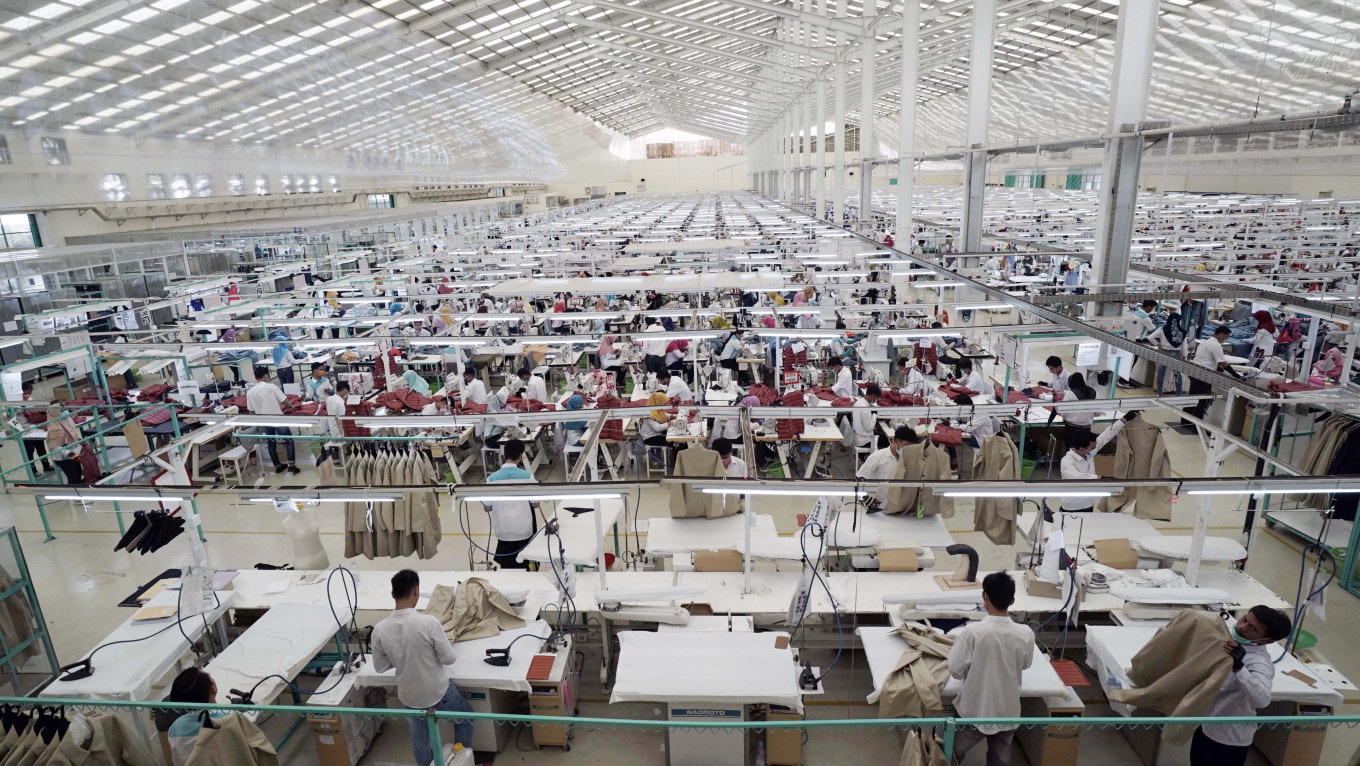Popular Reads
Top Results
Can't find what you're looking for?
View all search resultsPopular Reads
Top Results
Can't find what you're looking for?
View all search resultsLet’s all work less!
Once we get to the point where enough is enough, it makes sense to decrease working hours at the same rate that hourly productivity increases, so as to keep output constant.
Change text size
Gift Premium Articles
to Anyone
The State-owned Enterprises (SOEs) Ministry might be onto something with its trial of a four-day workweek, set to begin on Monday.
Unfortunately, the scheme, which applies only to the ministry’s workforce up to the director level, is very limited, because an employee may only take up to two Fridays off per month and, more importantly, may only do so after having worked 40 hours in the first four days of that week.
Hence, while the measure will save the eligible civil servants some time otherwise wasted in traffic, it does not amount to a reduction in work hours.
The so-called “compressed work schedule” should not encourage “laziness”, SOEs Minister Erick Thohir explained, apparently keen to avoid any impression of civil servants sitting on their hands while the rest of us work our backsides off.
That defensive stance is understandable for a politician, but at the same time, such a limited trial cannot address a much wider question: Should we all be working less?
It is high time for a bold rethink of working hours, not just in Indonesia, but around the world.
Erick said the four-day workweek was aimed at improving employee health, noting that mental health issues affected 70 percent of the younger population. While figures vary, many surveys point to an increasing prevalence of burnout and other work-related mental health problems.
Some studies suggest employees can produce more by working less; others show that greater workplace satisfaction helps organizations retain staff.
Most of us got a taste of the four-day week thanks to numerous public holidays in May, and the coming Monday is another day off. We cannot say we do not enjoy that.
Aside from employee well-being, however, there is another reason why we must have this debate: growing efficiency.
Modern machinery, evolving business procedures and the advent of artificial intelligence (AI) vastly amplify the productivity of a single worker. We see automotive factories with shiny robots but almost no human beings, drones hovering over fields with no farmers in sight and computer programs programming computer programs.
Never-ending technological progress means the output per employee keeps rising. With everything else remaining constant, that translates into ever-growing economic output for societies and the world at large.
Much has been written about the dangers of this and the limits of sustainable growth, but to dumb it down, here’s the gist: Who’s going to buy all that stuff, how do we deal with the trash and does it make us happier?
Unless we want to consume more and more, we cannot produce more and more. Once we get to the point where enough is enough, it makes sense to decrease working hours at the same rate that hourly productivity increases, so as to keep output constant.
By working less and slowing down, mankind would gain valuable time to deal with the ecological repercussions of growing industrial capacity.
A shorter workweek would free up time for family, culture, hobbies and for voluntary engagement, and even for moonlighting for those who need some extra income. For the many Muslims in Indonesia, having Fridays off would be particularly appealing.
The Indonesian Employers Association (Apindo), understandably, appears less than supportive of the idea, and for good reason, because the nationwide introduction of a shorter workweek would not go down well with investors.
That is why no country, let alone an emerging economy like Indonesia, could pursue such a path of development on its own. This would need to take place, at the very least, on a regional scale, such as within ASEAN, but better yet, at the global level.
Is that realistic at this time? Probably not, given that countries of the world struggle to agree on much simpler issues.
But be that as it may, we still should be having a debate on what is going to become an increasingly pressing issue in Indonesia, the region and the entire planet.











